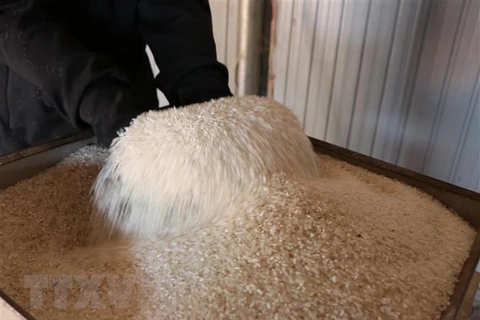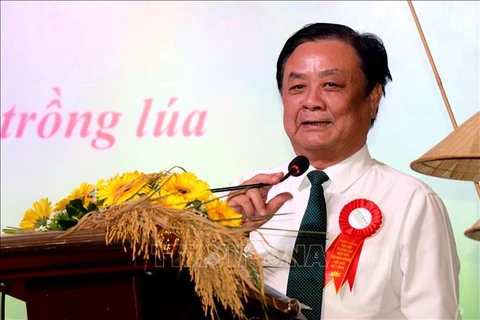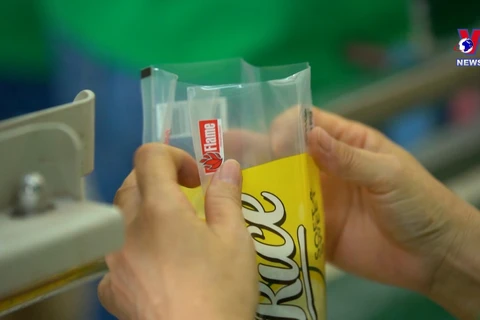Can Tho (VNA) - The Netherlands Development Organisation (SNV), in collaboration with related parties, on January 16 organised a workshop announcing the project ‘Transforming Rice Value Chains for Climate Resilient and Sustainable Development in the Mekong Delta’ (TRVC).
The project will be implemented from the Summer-Autumn crop in 2024, with funding of 16 million AUD (10.5 million USD) from the Australian Embassy in Vietnam.
It will be carried out by the SNV, in collaboration with the Ministry of Agriculture and Rural Development, and the Departments of Agriculture and Rural Development of An Giang, Dong Thap and Kien Giang provinces.
The project’s over-arching goal is to shift to low carbon rice cultivation on over 200,000 hectares in the Mekong Delta, contributing to the project on cultivating high-quality and low-emissions rice on 1 million hectares in the delta to 2030.
The project will be implemented from the Summer-Autumn crop in 2024, with funding of 16 million AUD (10.5 million USD) from the Australian Embassy in Vietnam.
It will be carried out by the SNV, in collaboration with the Ministry of Agriculture and Rural Development, and the Departments of Agriculture and Rural Development of An Giang, Dong Thap and Kien Giang provinces.
The project’s over-arching goal is to shift to low carbon rice cultivation on over 200,000 hectares in the Mekong Delta, contributing to the project on cultivating high-quality and low-emissions rice on 1 million hectares in the delta to 2030.
Using Pay-for-Results mechanism, it incentivises and attracts the participation of private enterprises in the rice value chain, aiming to develop innovative technologies to achieve higher economic outcomes for smallholder farmers and all rice value chain actors, improve rice quality, reduce greenhouse gas (GHG) emissions and promote inclusive social values.
Committing to supporting Vietnam in achieving its net zero emissions target by 2050, Cherie Russell, Counsellor for Development Cooperation at the Australian Embassy, expressed her hope that rice production in Vietnam will prosper in a green and sustainable manner, thus helping increase Vietnamese rice’s access to high-value export markets which are increasingly promoting the import of low-carbon products.
Committing to supporting Vietnam in achieving its net zero emissions target by 2050, Cherie Russell, Counsellor for Development Cooperation at the Australian Embassy, expressed her hope that rice production in Vietnam will prosper in a green and sustainable manner, thus helping increase Vietnamese rice’s access to high-value export markets which are increasingly promoting the import of low-carbon products.
The Mekong Delta is a key rice production region in Vietnam. However, rice cultivation in the region and in Vietnam in general is currently one of the major sources of greenhouse emissions.
Towards realising its commitment on net zero emission by 2050, the Government has taken actions, one of which is the project on 1 million hectares of high-quality and low-emissions rice in association with green growth in the Mekong Delta to 2030./.
VNA























